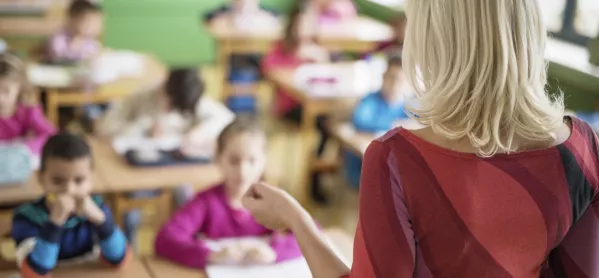Children who have a positive relationship with a primary schoolteacher go on to be less aggressive as teenagers, a University of Cambridge study suggests.
The study finds that the key time for this effect is around the age of 10-11, with a good pupil-teacher relationship markedly influencing the development of “pro-social” behaviours such as cooperation and altruism, as well as significantly reducing problem classroom behaviours such as aggression and oppositional behaviour.
Beneficial behaviours resulting from a positive teacher-student relationship when a child is on the cusp of adolescence lingers for up to four years, well into the difficult teenage years, the research concludes.
Academics found that students with a more positive relationship with their teacher displayed towards peers, on average, 18 per cent more pro-social behaviour (and 10 per cent more up to two years later), and up to 38 per cent less aggressive behaviour (and 9 per cent less up to four years later), compared with students who felt ambivalent or negative towards their teacher.
Positivity towards their teacher also resulted in students displaying an average of 56 per cent less “oppositional defiant” behaviour: such as argumentativeness and vindictiveness towards authority figures. This was still reduced by 22 per cent up to three years later.
More effective than ‘intervention’
In fact, the researchers found that the beneficial effect on behaviour was as strong, if not stronger, than that of established school-based “intervention programmes” such as counselling and other anti-bullying therapies.
The importance of good teacher relationships on infant behaviour was already known, and programmes have been designed to help preschool teachers to improve relationships with pupils, which in turn improves pupil behaviour.
Researchers say the latest results suggest that developing similar programmes for those who teach students in early adolescence has the potential to promote better classroom behaviour in schools that may otherwise rely more on exclusionary practises - such as detentions, or being sent out of class.
“Teachers play an important role in the development of children,” said the study’s lead author Dr Ingrid Obsuth. “Students who feel supported tend to be less aggressive and more pro-social, and we now have evidence that this is the case from preschool right through to adolescence.
“Educational and school policies should take this into consideration when supporting teachers in fostering their relationships with students.”
Perception is important
The research was conducted by members of the violence research centre at Cambridge’s Institute of Criminology, along with colleagues from ETH Zurich and the University of Toronto. The findings are published in the Journal of Youth and Adolescence.
The latest study analyses data from more than 1,000 students randomly sampled across 56 schools in Zurich, who formed part of a previous study.
Researchers said a student’s perception of the relationship was most important for behaviour.
Cambridge’s Professor Manuel Eisner, senior author on the study, said: “Most adults remember some teachers that they admired and that fit their learning needs, and others that they felt hard done by. This is not necessarily only because they have more or less supportive teachers. Each child will respond differently to a teacher’s style and personality.
“Our study shows that once a child develops an impression of a teacher, one way or the other, it can have significant long-term effects on their behaviour.”
Dr Obsuth added: “Ideally, building healthy and supportive teacher-student relationships would become part of the curriculum in teacher training and intervention programmes as a way of improving adolescent wellbeing.”
Want to keep up with the latest education news and opinion? Follow TES on Twitter and like TES on Facebook




